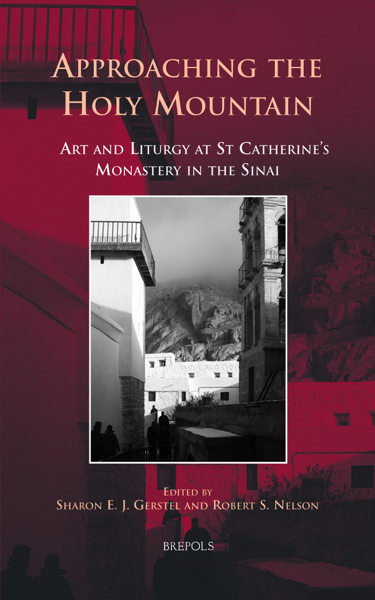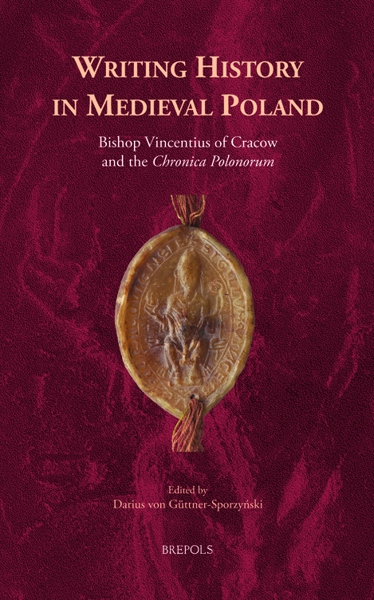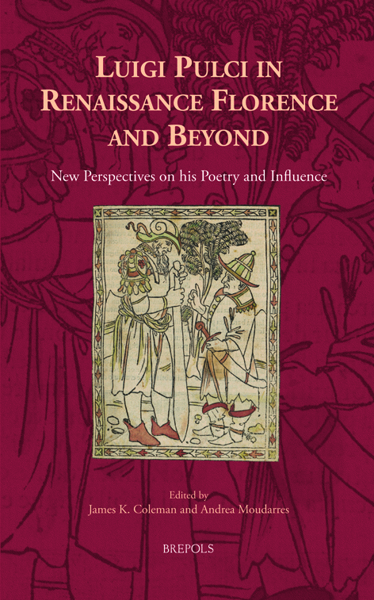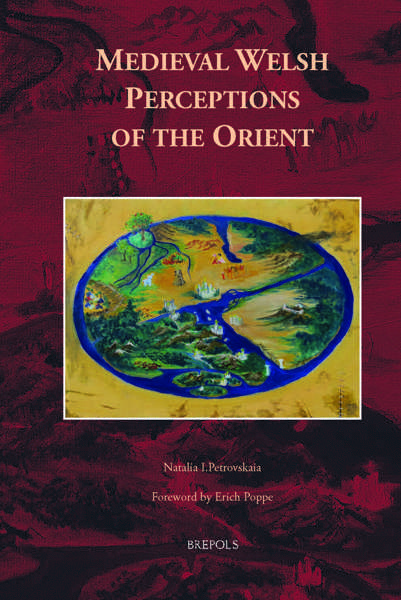
Visions of Unity after the Visigoths
Early Iberian Latin Chronicles and the Mediterranean World
Ksenia Bonch Reeves
- Pages: 288 p.
- Size:156 x 234 mm
- Language(s):English
- Publication Year:2016
- € 95,00 EXCL. VAT RETAIL PRICE
- ISBN: 978-2-503-56509-5
- Hardback
- Available
- € 95,00 EXCL. VAT RETAIL PRICE
- ISBN: 978-2-503-57046-4
- E-book
- Available
This study of Iberian Latin chronicles composed between the mid-eighth and mid-thirteenth centuries brings into critical focus the period after the fall of the Visigoths as a time characterized by an intense search for models of social cohesion amid diversity and political fragmentation.
“By breaking from the perspective of Spain’s national historiography Reeves highlights the transregional intellectual connectivity of the texts’ authors. This insightful analysis propels her study and reinvigorates a nearly forgotten subject.” (Dillon Brian-Thomas Webster, in Anuario de Estudios Medievales, 48/1, 2018, p. 433)
“This is a fine piece of original scholarship which demonstrates an excellent understanding of previous works on the subject (…) Bonch Reeves’s addition to the scholarship on medieval Iberia will certainly give grounds for further debate, and what more could one ask form a monograph?” (Aengus Ward, in The Medieval Chronicle 12, 2019, p. 225-226)
“ [Die Autorin] geht sie mit großer Unbefangenheit an die Textüberlieferungen heran, greift ältere Überlegungen wieder auf und wagt neue und überraschende Thesen.” (Das Mittelalter, 23/1, 2018)
This study focuses on post-Visigothic Latin chronicles as testimonies of an intense search for models of stability and social cohesion on the Iberian Peninsula. As the principal source of Iberian political thought between the eighth and mid-thirteenth centuries, these texts have long been regarded from the perspective of modern-day national boundaries of a political entity called Spain. From the post-national perspective of Mediterranean studies, which considers Iberian centres of power in cultural contact with the broader world, post-Visigothic Iberian chronicle writing is seen as a cultural practice that seeks to reconcile the imperative of unity and stability with the reality of diversity and social change.
The book examines, firstly, the Andalusi Christian narrative of Visigothic political demise, which originated in Iberian dhimmī communities between the mid-eighth and mid-ninth centuries. Second, it explores the narrative of sovereignty, developed in Asturias-León from the late ninth century onwards. Finally, it examines the historiographical manipulation of both of these traditions in Rodrigo Jiménez de Rada’s Historia de rebus Hispanie (1243).
The ongoing contact between Iberian Latin textual communities and the broader Mediterranean is interpreted as central to both the development of Iberian historical mythology and its historiographical renovation.
Acknowledgements
Abbreviations
A Note on Texts
Introduction
After the VisigothsChapter 1. The Epic’s Poor Cousins: Mediaeval Iberian Latin Chronicles in Twentieth-Century PhilologyScope and Limits
Defining the Terms
The Mozarabic vs the Neo-GothicRethinking UniquenessSpain or Iberia?
Approaching the Chronicle
Chapter 2. The Mozarabic Chronicles, Islam, and the Mediterranean Apocalyptic
The Mozarabic Historiographical EnigmaChapter 3. Between the Emirate and the Holy Land: Eulogius of Córdoba, the Culture of Martyrdom, and the Ideology of Iberian CohesionVisigothic Spain and the Mediterranean
Peripheral Visions
Narrating the Apocalypse
Seeking Unity in Times of FluxChapter 4. Visigothic Law, Sovereignty, and North-Eastern Iberian Political Rivalry in the Asturian Chronicle TraditionMediterranean Connections
Eulogius’s Iberian Foundations
Eulogius’s Logical Impasse and its Aftermath
Questioning AsturiasChapter 5. Revisiting the Reconquest in Eleventh- and Twelfth-Century Leonese Chronicles: A Holy War or a Just War?Asturias and its Political Neighbours: A Crowded Landscape
Reges et leges: Defining Legitimacy
Lawful Narratives
Locating the Muslims in Leonese ChroniclesChapter 6. Toward a Philosophy of Unity in Rodrigo Jiménez de Rada’s Historia de rebus HispanieFraming the Reconquest: Visigothic Political Thought Prior to 711
Ideologies of the Reconquest in Asturias-León
Castile: Toward a New UnityConclusion: In Search of ContinuityRodrigo and the Post-Gothic
Select Bibliography
Index




